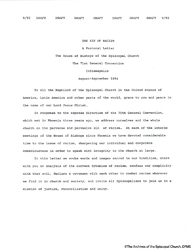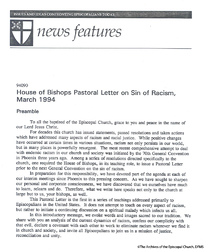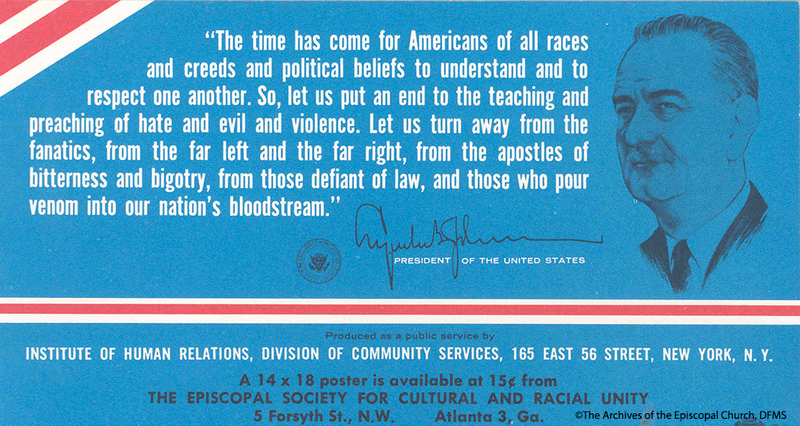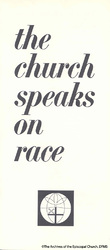The Sin of Racism
The Episcopal Church continues to struggle with a legacy of segregation and racism. After a period of retrenchment in the 1970s when the Church addressed issues such as Prayer Book reform, the ordination of women, and the rights of other minority voices, the 1990s saw a renewed call for racial equality and cultural diversity.
In March 1994, the House of Bishops issued the Pastoral Letter on Racism, which definitively stated that, “Racism is totally inconsistent with the Gospel and, therefore, must be confronted and eradicated.” Basing its message on the baptismal covenant, the Bishops invited all baptized Christians to enter into a new covenant to fight racism and to, “proclaim the vision of God’s new creation in which the dignity of every human being is honored.”
Over the years the Church has issued various other statements on racism including a pamphlet called The Church Speaks on Race, which includes key statements from the Church spanning the years 1940 to 1963. Church activists pressed for the Church to confront its institutional racism beginning with the first call for a racial audit in 1985 (A078). Successive calls for self-examination produced in 1991 (D113) and 2000 (A047) two nine-year commitments to end racism in the Episcopal Church. Recognizing the lack of progress in 2000, the General Convention required anti-racism training (2000-B049) as a regular part of the preparation to be a fully formed Episcopal leader. In 2006 (C011) various dioceses began to examine and document the benefit the Church has derived from its historical complicity in slavery, segregation, and discrimination. [Sources]

Draft document of the House of Bishops’ pastoral letter on “The Sin of Racism,” introduced by the Bishop of Western Michigan at the September 1993 interim meeting of the House of Bishops.

The final version of the Pastoral Letter was issued at the 1994 General Convention by the House of Bishops and addressed the sin of racism, pinpointing the cause of racism as fear. The Bishops pledged to take steps to address the racism inherent within each of them and invited all Episcopalians to join them in this effort to confront and eradicate racism.



